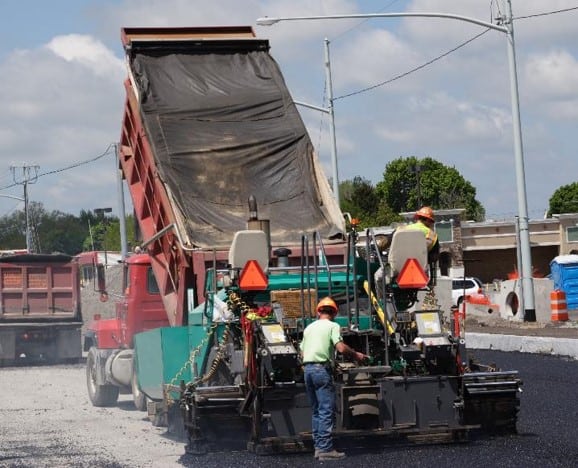CAGC Sees Success in Long-Term, Sustainable Road Funding
Road funding legislation was passed last week by the South Carolina Senate and House after a veto was overridden. The Carolinas AGC (CAGC) celebrates big wins for the construction industry in South Carolina with recent successes regarding road funding.
Last week, the South Carolina Senate and House took swift action in overriding Gov. Henry McMaster’s veto of H. 3516—the road bill. It would generate about $633 million for the state when fully implemented. The governor had vetoed the bill after the SC Senate and the SC House had approved it. This is the first time in 30 years that South Carolina has passed a long-term, sustainable funding plan to fix and maintain the roads in the state.
CAGC and its members were instrumental in pushing this bill through in many ways, including:
- For years, CAGC staff and members have asked the legislature to pass a long-term, sustainable funding plan. CAGC has worked with local chambers, the state chamber, and many other business groups to try to obtain this funding goal as well.
- CAGC staff and members have attended numerous meetings with House and Senate Leadership regarding road funding.
- CAGC SC lobbyist Leslie Clark has also attended numerous meetings at the State House, and spent several days and late nights on the lobby floor pushing for a passable plan.
- CAGC members helped form the South Carolina Alliance to Fix our Roads (SCFOR).
As approved, the bill, which becomes effective July 1, 2017, provides for the following toward the roughly $633 million when fully implemented:
Funding and Fees
- A gas tax increase of 2 cents a year for 6 years (no indexing included)
- This increase equates to roughly $1.40 a week for a driver who travels 15,000 miles in a car that gets 25 miles a gallon and will generate $426 million in year 10.
- A Maintenance Fee plus Sales Tax on vehicles (5%, $500 cap)
- The 5% sales tax on vehicle sales would increase by $200 and will generate $74 million in year 10.
- A $250 new SC resident vehicle fee
- This is a one-time fee that would be paid by new SC residents when they move into and register a vehicle in SC. This fee will generate $23 million in year 10.
- A $120 biennial fee on electric vehicles and a $60 biennial fee on hybrid vehicles
- Electric and hybrid vehicles drivers would pay the fees every two years and will generate $3 million in year 10.
- An increase in the vehicle registration fee of $16
- SC drivers under 65 would pay $40, up from $24, and SC drivers 65 and older or handicapped would pay $36, up from $20.
- Motor Carrier Road User Fee
- A commercial vehicle road user fee that will generate $11 million in year 10.
- CTC Donor Bonus Transfer from SCDOT
- CTC’s will receive a $40 million additional allocation to the current $75 million level in year 5 and beyond.
Tax Rebates
- An increase in the dual wage-earner tax credit
- Increases the cap to $50,000, up from $30,000 over six years.
- A tax credit for what the legislature called the working poor
- A Non-refundable tax credit equal to 125 percent of the federal earned income tax credit; phased-in over six years.
- A college tuition tax credit
- This credit is equal to 50 percent of tuition, capped at $1,500.
- A gas tax rebate
- This is a refundable tax credit equal up to the amount spent on vehicle maintenance or gas tax increases; it is capped at $114 million and ends after seven years.
- A tax cut for manufacturing property
- Decreases the tax from 10.5 % down to 9 % over six years.
SCDOT Commission Restructure
- The SCDOT Commission will be comprised of seven Congressional District Commissioners and two At-Large Commissioners.
- The seven Congressional District Commissioners will be appointed by the Governor and sent to the legislative delegation for approval with a majority, weighted vote by the delegation.
- Commissioners terms will be limited to two consecutive four-year terms, with a lifetime maximum of 12 years.
- The two At-Large Commissioners must be submitted to the Senate Transportation Committee for confirmation hearings before being referred to the full Senate for final confirmation.
- Commissioners serve at will and can be removed by the Governor.
- Commissioners may not have any interest (direct or indirect) in contracts awarded during their tenure or one year after their term ends.
- The Commission is removed from the day-to-day operations of the department; requires the Commission to hold at least six meetings annually with one week notice; and the publishing of all reports online, including audit reports.
- Directs the SCDOT to prepare a Transportation Asset Management Plan (TAMP) that addresses funding and safety measures for rural roads.
- The Joint Transportation Review Committee is repealed.
Source: CAGC







